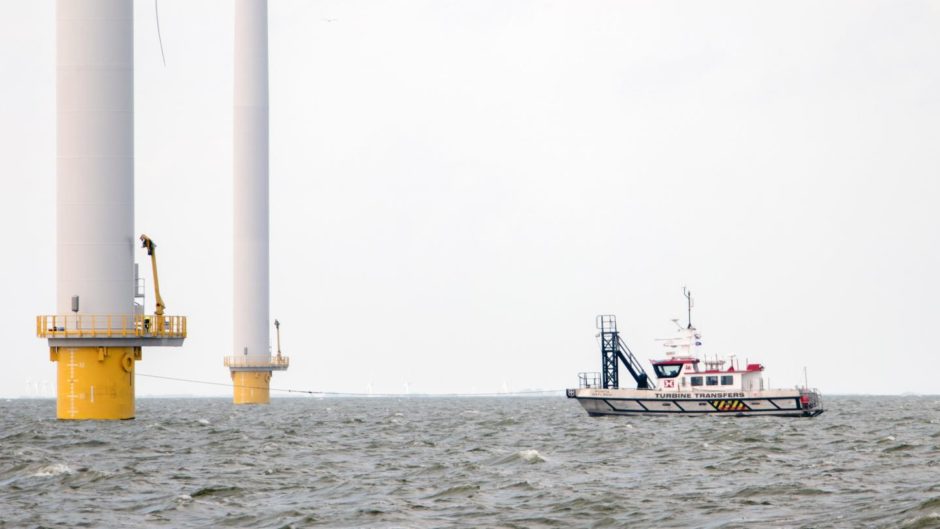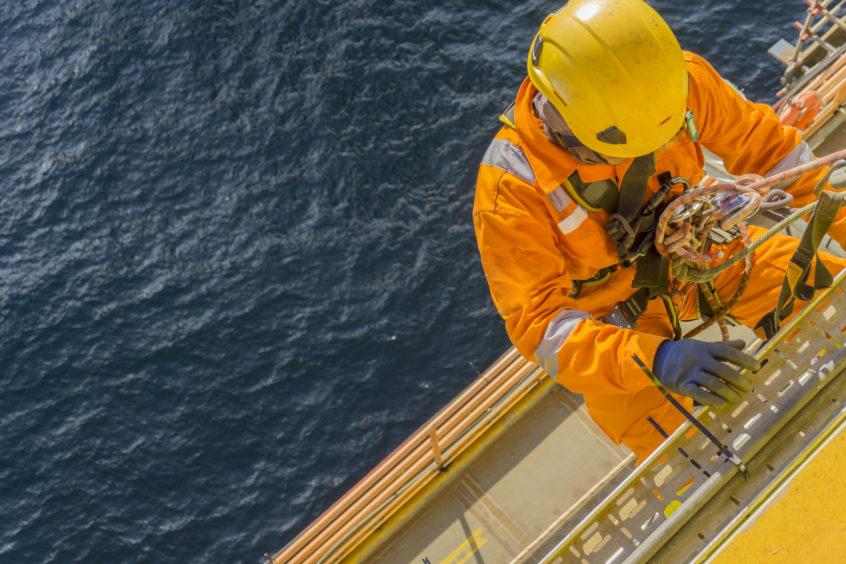
Trade unions and climate campaigners have called for the creation of an “offshore training passport” to help workers move between the oil and gas and renewables sectors more easily.
The groups complained that oil workers had to pay to repeat “extremely similar” training courses if they wanted to get jobs in wind power, a situation which threatens to scupper the “just transition”.
In addition, they claimed that the North Sea Transition Deal, agreed by the oil industry and Westminster in March 2021, did not provide any “real support” for workers or communities.
They said a training fund for the offshore passport should be established as part of the transition deal to “directly support workers rather than companies”.
Responsibility for implementing the passport system should rest with the UK and Scottish governments, working directly with the Health and Safety Executive (HSE), as opposed to “standards bodies”, they argued.
A survey of more than 300 Scottish offshore workers, conducted by Friends of the Earth, Platform and Greenpeace, and published today, found that 93% were in favour of standardised training.
On average, Scottish workers spent £1,627 per year on training, according to the study, which was supported by the RMT and Unite trade unions.
It found that workers were “often” required to repeat existing training when starting a contract with a new employer and when moving to jobs in other offshore sectors.
Almost two thirds (64%) said that when taking a contract with a different employer, they were asked to duplicate existing qualifications that were still in date.
Some 61% said employers paid none of their training costs in the past two years.
Seventy-one percent of respondents were contractors, rather than direct employees of companies.
The results of a UK-wide survey of 610 offshore oil workers were largely similar to those in the Scotland-specific poll.
One worker, a 39-year-old father from Fife who wished to remain anonymous for fear of being “blacklisted”, said he’d spent £3,000 on training costs in the past two years, with no help from employers.
“I know people who’ve packed it in altogether because working offshore is just too expensive,” he told the campaign groups.
“I have thought about working in renewables, but that’d be thousands of pounds you’d have to pay to work in both industries.
“It’d just be too much. It costs an absolute fortune just to stay in one sector.”
Unite regional officer John Boland said training costs and duplication of training were a “major issue” for workers and that the unions had been calling for standardisation for years.
Asked why oil industry firms could be expected to support individuals’ training costs, Mr Boland explained that while some ad-hoc contractors regularly move from one job to another with different end-users, many work on the same platform for years.
He said employers used to cover a chunk of contractors’ training costs, but that this support had dropped off “drastically” in recent years.
Mr Boland said: “Our oil and gas members are going to have to pay for additional duplicated training to work in renewables.
“It creates barriers that need to be removed if we are going to see a just transition from oil and gas into renewables.
“All the workers are asking for is the ability for workers to be able to move freely between offshore and onshore energy sectors, standardisation of certification across the energy sector, and the removal of duplication of training.”
Last year, energy sector skills and safety standards body OPITO established the Energy Skills Alliance (ESA) in an effort to address some of these issues.
This cross-industry group’s membership includes representatives from the UK Department for Business, Energy and Industrial Strategy (BEIS), the Oil and Gas Authority, Oil and Gas UK (OGUK), the Scottish Government and Scottish Renewables.
The Scottish Trades Union Congress and Unite are also represented in the skills alliance.
It is compiling employment data to create a clear overview of skills overlap between sectors and hopes to pilot “all-energy apprenticeships” next year.
This would help companies give apprentices the right skills to meet the needs of an “integrated energy sector”.
The My Energy Future education campaign, a core part of the alliance’s programme, launched in May and is now seeking funding support from across the industry.
Meanwhile, the transition deal committed the alliance to work with industry on the development of a People and Skills Plan for the North Sea transition, including all-energy training and standards.
However, the campaign groups said the alliance was “not an appropriate vehicle” for these changes.
They accused organisations like OPITO of “obstructing” schemes that would standardise certification and lower costs.
RMT general secretary Mick Lynch claimed standards organisations were “setting the agenda based on commercial imperatives” rather than what the workforce needs.
John McDonald, chief executive of OPITO, said training costs were set by individual training providers who deliver the courses.
OPITO — which sets the standards adhered to by hundreds of companies, and accredits more than 200 global training providers – said it made a small charge for quality assurance and data management of up to £25 per training certificate.
OPITO said it continually engaged industry and regulators to identify emerging training requirements and develop new standards.
Mr McDonald also said the skills alliance had been created to deliver “greater alignment and standardisation of training” for the offshore energy workforce.
He added: “OPITO is committed to ensuring prior training is recognised across the energy sector and people are able to develop transferable skills that enable them to build sustainable energy careers.”
Mr Boland said the Energy Skills Alliance produced ideas, but “not a lot of action”.
The UK Government said: “High-skilled workers and the supply chain will not be left behind in oil and gas sector’s transition to a low carbon future.
“Through our landmark North Sea Transition Deal, we are backing the decarbonisation of the oil and gas industry while supporting tens of thousands of jobs across Scotland and the wider UK.”
Just Transition Minister Richard Lochhead said the Scottish Government was committed to ending the country’s contribution to climate change “in a way that is just and leaves no-one behind”.
Mr Lochhead added: “A just transition within the energy sector is critical and the re-deployment and, where necessary, re-training of workers will be key to ensuring a just transition over the next decade – and to meeting the labour and skills needs of a growing renewables sector.
“The oil and gas sector has a key role to play in this, given its existing skills and expertise. We are working collaboratively with the industry, trade bodies and unions to ensure the right skills and training are in place to protect and create jobs as we become a net-zero economy.”
HSE said that, in its role as regulator, it required employers to show that their workforce is competent.
But HSE said it was up to employers to define competency standards as those are “not laid down by legislation”.
HSE added: “We welcome any initiative and innovation that leads to improvements in workforce competency across all industrial sectors, including the passporting of training.”
OGUK said it was encouraged that the critical role oil and gas workers would play in the energy transition had been recognised.
The industry body’s workforce engagement and skills manager, Alix Thom, added: “We agree that we need to remove any barriers to people moving between different energies with ease.
“We will be engaging with employees at all levels across the sector to ensure the transition deal is implemented in a way that works for them and their skills.
“Certification concerns are being explored through the work of the Energy Skills Alliance, which is looking at minimising duplication, promoting mutual recognition, and aligning standards between different energy sectors.”
Recommended for you


 © Shutterstock
© Shutterstock
 © Supplied by OPITO
© Supplied by OPITO